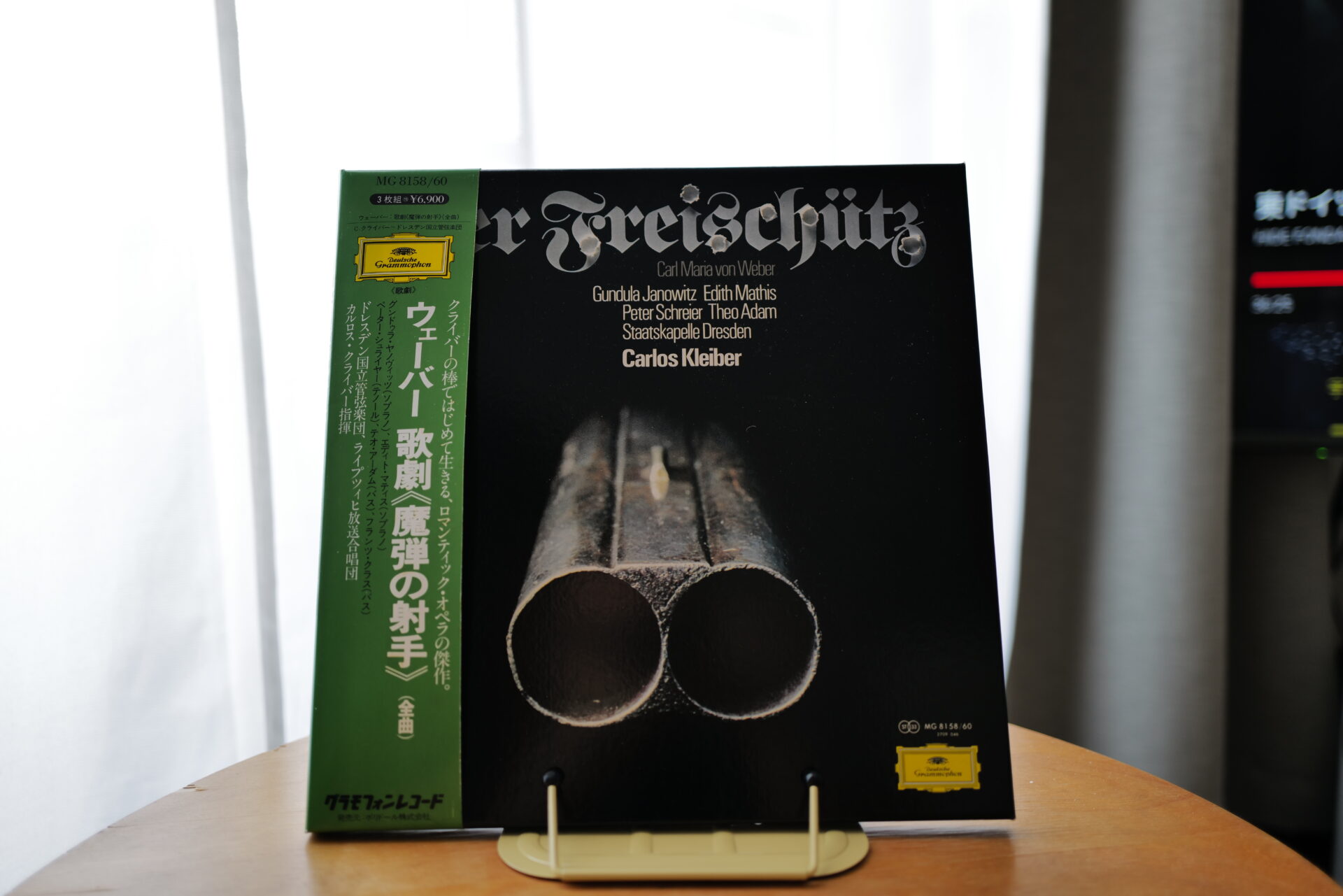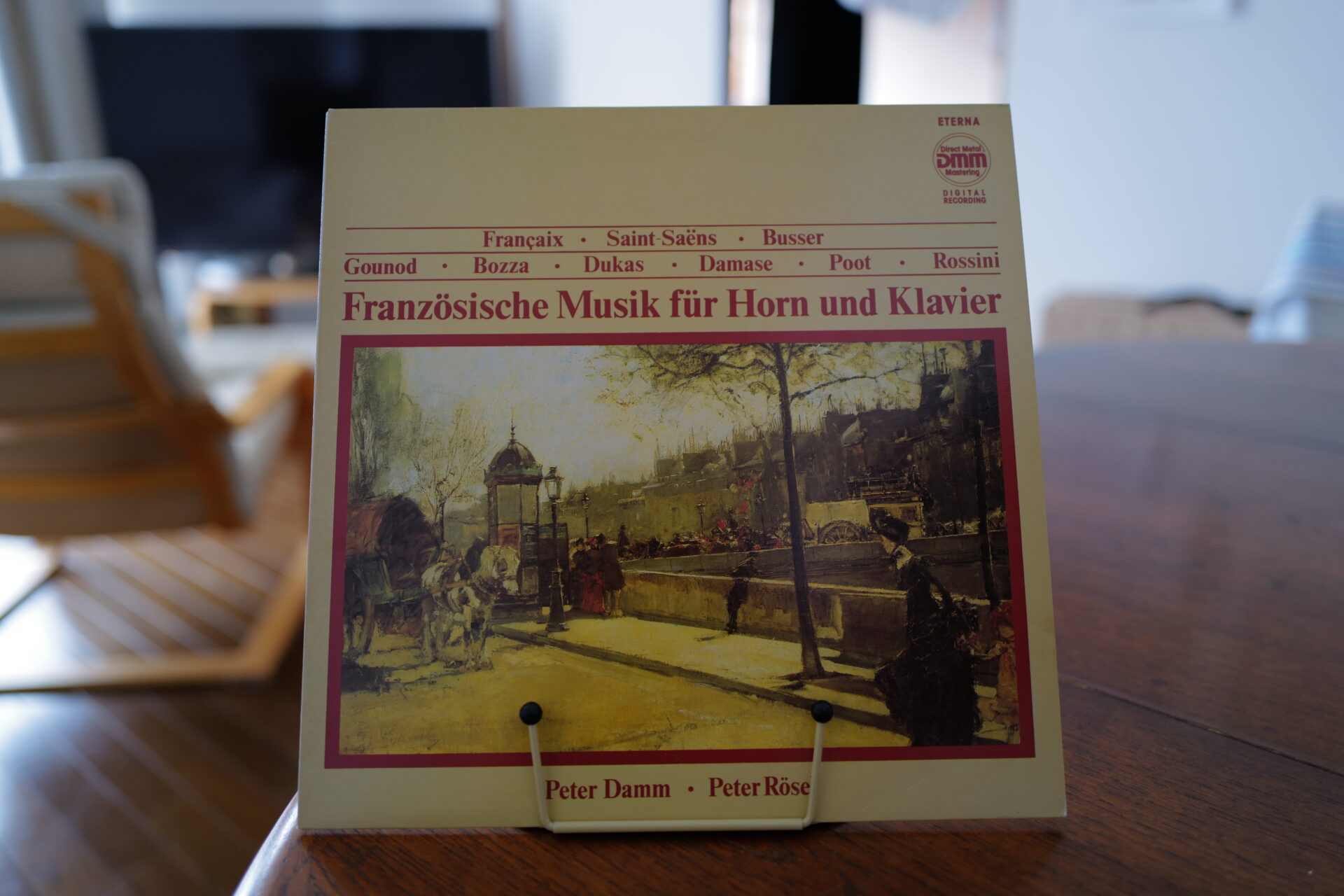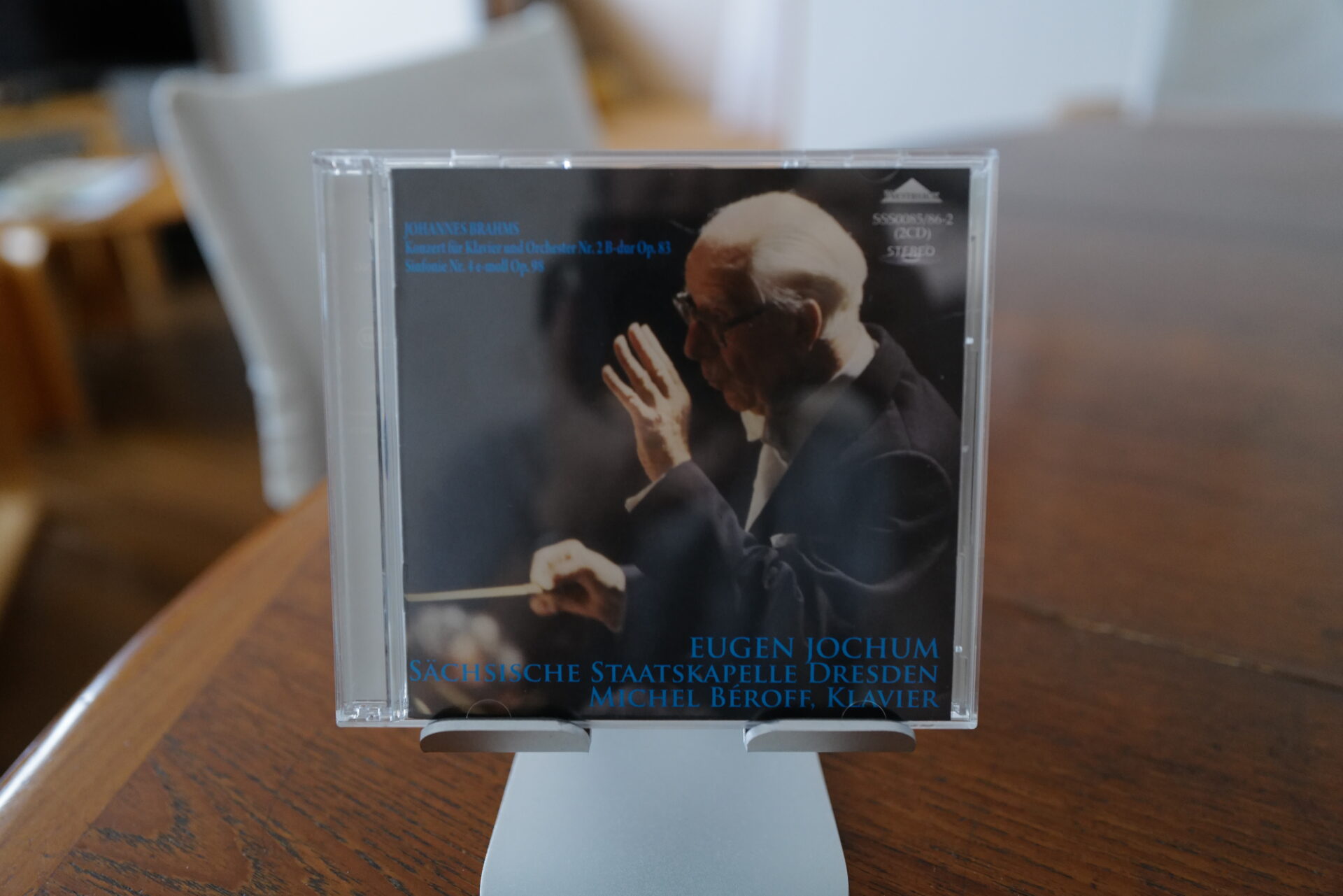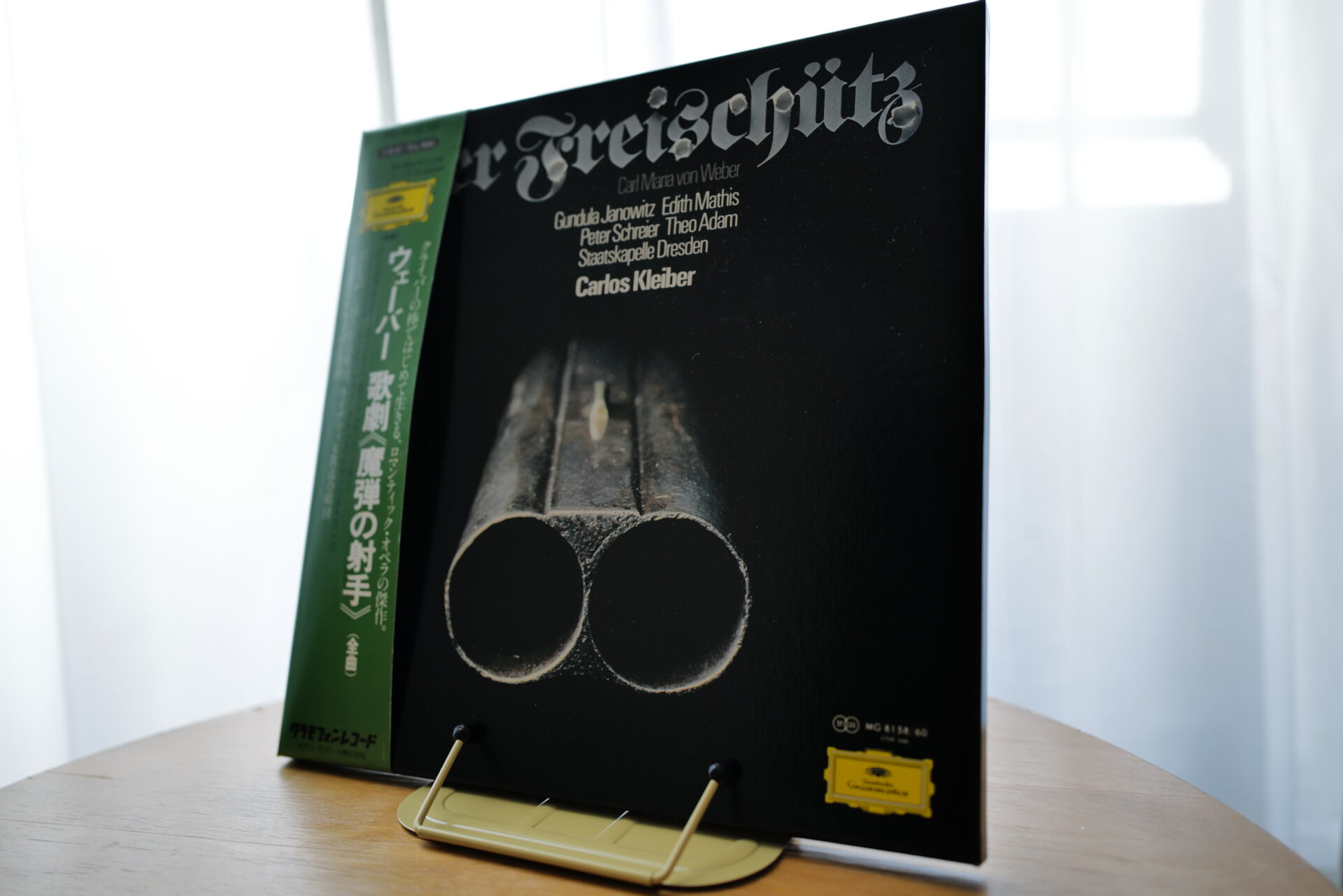
Peter Damm clearly answered to a Japanese interview that his main profession is not solo player but orchestra horn player. Orchestra players need to fulfill conductor’s requirement by 100%. It is quite interesting that difference of playing style shows difference of conductor’s demand on Peter Damm. I selected Carlos Kleiber, who is known as the most demanding and strictest conductor in the recent history. It is exciting to listen the recording made by legendary conductor and legendary horn player. Carlos Kleiber left very few (official) recording, but this “Der Freischütz” is the first and official recording which he approved.


Music
“Der Freischütz” is German opera which was written by Weber between 1816 and 1820. Germany lost a lot of properties and lands after Napoleon war, and German people needed German culture and art which help people to regain their confidence. Though Italian opera was main stream at that time, Weber sticked to completing German opera which uses German language with story in Germany. You may think “The Magic Flute” also uses German language, but the stage is Egypt.

This opera gave huge impact on Richard Wagner. Wagner listened “Der Freischütz” conducted by Weber himself in Dresden. I will summarize the story for the friends who do not know the story.
Young Max decided to use magic bullet to get “license” to marry Agate, his sweetheart, in a competition, following an advice from his bad friend. After the competition, he admitted he used dirty trick and was about to be exiled from the community. However, he was forgiven by his daily good behavior and sincere love by Agate.
Not heroic story at all, but Area by Agate is very impressive.


Player and Recording
Conductor: Carlos Kleiber
Orchestra: Staatzkapelle Dresden
Recording engineer: Claus Strüben
Date: 22 January to 8 February, 1973 (Peter Damm 35 years old )
Venue: Lukas Kirche, Dresden
Zeit, hör auf, du bist wunderschön. (Time stop, you are so beautiful !)
It is said that Carlos Kleiber had been skeptical on recording itself. Nevertheless, he agreed to the recoding, considering historical ties between Dresden and his father. His father, Erich Kleiber, loved this opera. Staatzkapelle Dresden is the orchestra which Weber and Erich conducted in the past. His father often played “Der Freischütz” and Carlos has listened the performance many times in the theaters. He though he can never play the Opera as good as his father. The staff needed to cheer him up many times.
Peter Schreier was not confident, neither. His voice was not suitable for traditional heroic tenor for this opera. However, Carlos Kleiber preferred his voice and had to cheer up Schreier. In the end, Schreier did very good job and give us a feeling as if the Max’s part was written for Schreier. A conductor cheered up singer, and staff cheered up the conductor. All the staffs were not confident to complete this recording project. They know Carlos had abandoned a recording just before this time.

One day when the receding was close to an end, Carlos Kleiber listened recording of last scene and he could not stop saying, ” Time stop, you are so beautiful ! ” which is the famous fraise of “Faust” written by Goethe at the moment the professor feels the happiest. It means Carlos Kleiber is at the happiest moment. The project completed.
The collaboration among staff, conductor, players, and singers made it. The legend is recorded with beautiful sound of Peter Damm.


My favorite
Overture
The horn section solo at the beginning of Overture is very famous. It was innovative idea to combine different tone’s horn together (in C and inF ). Harmony and phrasing is key as a section here. Peter Damm succesfully lead the team, instead of playing independently as a soloist. We can enjoy different aspect of Peter Damm by this recording.

Act 3 “Chor der Jäger”
This is a popular music for horn players with many arrangement. The play here is very fast, while most of recording tend to be slow and heavy. I like it ! Carlos Kleiber “disclosed” the secret why the sound of horn section is so thick in an interview. In fact, it is not secret that the recording invited 8 horn players (original 4) and we can see the evidence in a picture inside LP.
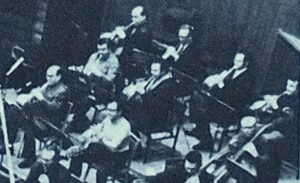




Reference: Alexander Werner “Eine Biografie
